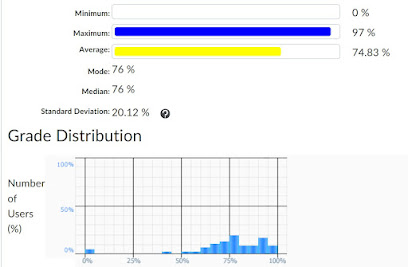I don't often talk about writing pedagogy here, but given that most of my teaching is for Writing Program classes, and that my professionalization is continually ongoing, I've obviously developed many, many views on the theory and practice of writing, especially in Writing Programs. Anyway, we've recently devised the draft for a "values statement," and it's loaded with words like compassion, autonomy , equity , inclusion , and curiosity . The whole thing made me roll my eyes, and in response to this draft, I presented my objections to the entire statement in the following manner ----------------------- So .... I'll be honest. I absolutely hate this statement. The bolded words [ compassion, autonomy , equity , inclusion , and curiosity] are a simple list of abstract-noun buzzwords, and although I have no real objections to any word in particular (for example, what rational person would reject autonomy?), that is largely because each buzzword is so vague


